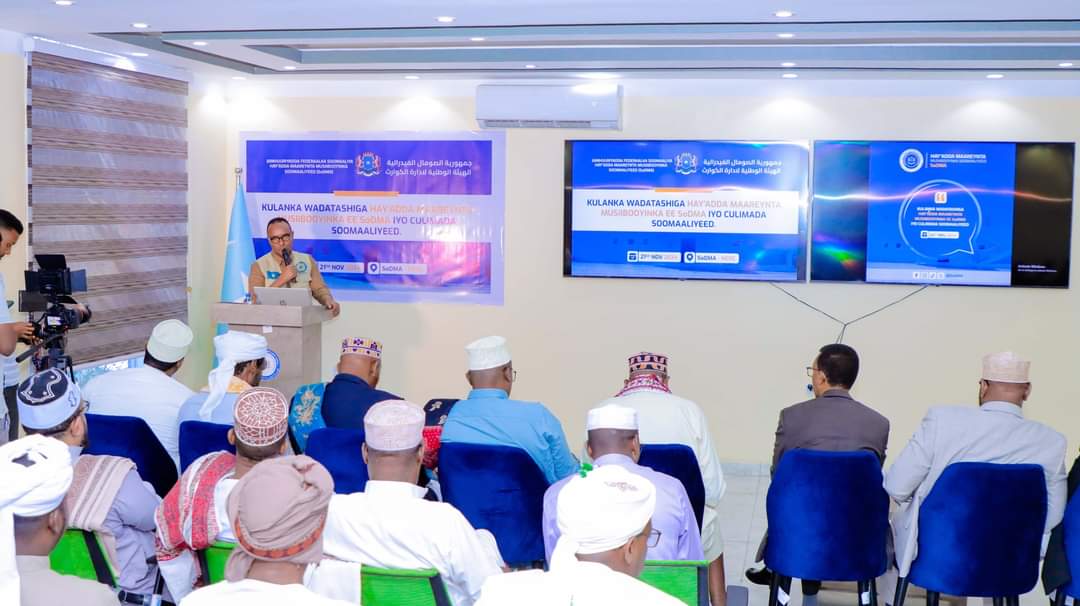A country with no an independent judiciary cannot fight political corruption
Kismaayo (Commentary) — In Mogadishu anti-corruption show trials are going on. It is a plot to mislead the International Community into thinking that the Federal Government of Somalia is serious about fighting corruption. The time-frame for fighting corruption is baffling: President Hassan Sheikh Mohamud authorised the investigation of cases dating back to 2018 during the tenure of his successor-predecessor President Mohamed Abdullahi Farmajo. How can an incumbent President whose extended family members have business interests in Mogadishu preach citizens in a Villa Somalia mosque about fighting corruption?
What helps the rhetoric of President Mohamud to remain unchallenged is the history of dispossession and looting associated with Mogadishu since 1991. More than 30% of Mogadishu buildings in Hodan, Wardhiigley, Hawlwadaag, Towfiiq have been built on illegal plots of land. Public and private properties of “resident clans” (i.e. ku dhashay) have been occupied by powerful, local clan militias.
The national assets committee formed by President Mohamud has members including Abshir Huruse, the Somali Foreign Minister, who hails from Puntland and who does not belong to any of the militias that carved up Mogadishu into clan fiefdoms (aagag) in 1991. A journalist in Mogadishu commented on the so-called anti-corruption trials in Mogadishu thus: “When a thief becomes a judge of a case involving theft, it is like injustice being given a new lease of life.” A government worker’s bank account has been investigated. More than 1000,000 dollars are in his bank account. How he obtained that amount of money despite earning a monthly salary 800% less than the money in his bank account is puzzling. How the federal government prosecutors found access to the suspect’s bank is arguably dubious. An MP in Mogadishu told me over the phone that “The Federal Government can frame up its critics by intimidating the banks to plant evidence in bank accounts.”

The approach to investigating corruption is political in nature, rather than legal. President Hassan Sheikh Mohamud delivers Friday sermons in a Villa Somalia mosque to castigate corrupt officials, but shows a fundamental misunderstanding about the nature of political corruption in Somalia. A country with no independent judiciary cannot investigate corruption. No President or Minister declares his/her assets to assume the responsibility of a public office. If a President stands in a mosque and talks about corruption, he is impersonating the leader of an autocracy, all the more damaging to the national image if the President’s family benefited from the public office. Recently President Mohamud said that his family members had the rights of citizenship and could not be prevented from working for the government. The principle of conflict of interests trumps any rights the members of the President’s extended family to seek employment from the government.
In Mogadishu a businessman’s source of wealth is openly debated. Wealth generated from food diverted from drought victims or money embezzled from a Ministry but invested in the venture of a businessman are examples about rampant corruption that thrives on pretence to fight corruption: Somali politics need to be cleansed of former business people who joined politics and a politician with commercial interests who use the public office for private goals.
Since Mogadishu is a city unable to shake off the dispossession stigma of the 1990s , no local politicians can challenge the President to come clean on his record of amassing public wealth during his first term in office (2012-2017). The donors will not fall for the diversionary tactics of the Federal Government of Somalia.
Ali S. Aweys is a former employee of the Central Bank of Somalia.









